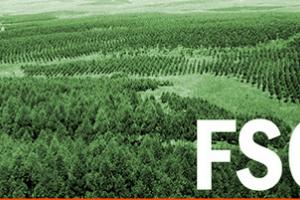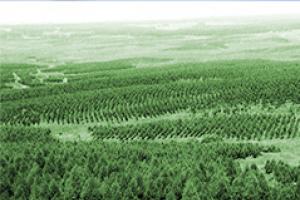Press Release - September 1, 2006
Colombia
1 September 2006
Other information
1 September 2006
We the undersigned wish to register our concern over the certification of tree plantations in our country by the FSC, which has granted a green label to monoculture plantations that have proven to be socially and environmentally destructive.
We are aware that the FSC is carrying out a review of its plantation certification policy, and it is our hope that the result of this process will be an end to the certification of these types of plantations by the FSC in the future.
Bulletin articles
1 August 2006
The Bari people, a minority belonging to the Arawak family known as the Children of the Forest, inhabit the Catatumbo Basin in the north of the Department of Santander. The Motilon Bari have a language known as Bari-ara and their own internal and external political and social organization. Their supreme authority is the Autonomous Council of Chiefs, comprising 23 Caciques (Chiefs) from the 23 communities of the Motilon indigenous people.
Bulletin articles
2 July 2006
In 2003, WRM paid a field visit to Colombia to acquaint itself with the communities affected by Smurfit plantations and to gather evidence. At that time, we published the following in an article:
“…The local people told us that ‘the plantations have finished off the water,’ that “spraying has finished with everything there was in the soil,’ that ‘there is hardly any fauna left,’ that there used to be ‘clouds of birds’ and that now ‘only in the summer does some bird appear, but not in winter time,’ and that ‘there are no fish left either.’
Other information
5 June 2006
Colombia is involved in the same process taking place in several Latin American countries regarding the establishment of fast-growing monoculture tree plantations.
Bulletin articles
6 May 2006
The Motilon Bari Indigenous Peoples have been settled for thousands of years in the basin of the Catatumbo River, in the Department of Northern Santander (Colombia). It is a forest zone, covering an area of approximately 126,600 ha and shares its frontier with Venezuela. Its humid forests, that act as a natural filter for Lake Maracaibo (Venezuela), have considerable potential regarding biodiversity, wood and minerals, hydrocarbons and water resources.
Bulletin articles
7 April 2006
Following the adoption of the Forestry Bill in Congress, it was sent for presidential sanction on 13 December 2005. President Alvaro Uribe objected to 12 of the articles of the Law and it was expected that the text would be returned with the objections for discussion by Congress as set out in the procedure.
Bulletin articles
8 January 2006
Perhaps no other Bill in Colombia on environmental matters has given rise to such diverse opinions and to such commotion as the discussion in the Colombian Congress of the General Forestry Law adopted by this institution last December. The strength of the arguments and the response of Colombian environmentalism, social movements and even part of the mass media have been such that for the first time President Alvaro Uribe Velez returned a Bill to the Congress of the Republic.
Bulletin articles
12 November 2005
The forests of the Colombian Pacific, the Pacific Region Territory, one of the areas of greatest biodiversity in the world, have been inhabited for many years now by Afro-descendent riparian communities. Their members were the last Colombian citizens to gain recognition of their right to the ownership of the territories that they possessed and used for centuries.
Bulletin articles
14 August 2005
Forests provide for the livelihoods of hundreds of millions of people worldwide and particularly in the tropical areas. Whatever activities are carried out that imply deforestation or forest degradation will therefore impact directly on the means of survival of those people and thus also on their health.
Other information
14 August 2005
Thousands of indigenous peoples are displaced from their land, which is militarized and expropriated in an unending genocide. Oil exploitation is carried out – causing damages that go uncompensated – without consulting the communities and with the connivance of the government of the time. Transnational companies such as Shell, Repsol, and Maxus appropriate territorial spaces under the pretext that they are of “public utility”, they contaminate bodies of water and river beds, they deforest virgin forests and generate impacts destroying the future.
Other information
14 August 2005
The herbicide glyphosate was identified in 1974 by John Franz, a scientist working for US-based agro-industrial multinational Monsanto. Today Monsanto boasts that its glyphosate products, which include the herbicide Roundup, are "among the world's most widely used herbicides".
Glyphosate works by interfering with the metabolism of the plant and a few days after spraying, plants wilt, turn yellow and die. Glyphosate herbicides also contain chemicals which make the herbicide to stick to leaves so that the glyphosate can move from the surface of the plant into the plant's cells.


